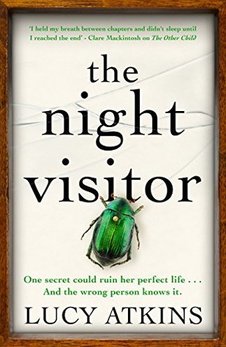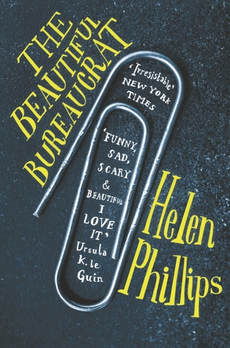The Night Visitor by Lucy Atkins
Switching between Vivian’s first person account and Olivia’s in the third person, the novel backtracks to the women’s first meeting through to the shocking climax at the manor house on the day after the launch. Positioned as a thriller in the domestic noir style, I actually found the pace a little slow in the middle, but I enjoyed it immensely approaching the end as Vivian emerges from the stereotype of lonely eccentric with odd compulsions (which is of course how Olivia sees her) to a complex character with an understandable grievance. It is she who experiences the “night visitor” in the form of a terrifying visual hallucination accompanied by sleep paralysis. Although we eventually discover the genesis of this disturbing experience, I found it a bit gimmicky and didn’t feel it served the more psychological aspects of the plot particularly well. On the other hand, I loved learning about dung beetles (especially as, having only ever seen them in Africa – twice – I had no idea they were so prevalent and important in the UK). Overall, I found it an easy and entertaining read addressing socially relevant topical issues such as celebrity, narcissism, female academics, hubris, self-deception and the nature of truth. Like The Life to Come, it’s a warning to all of us not to underestimate people who, on the surface, may seem colourless. Thanks to Quercus Books for my review copy. Although about friendship rather than work relationship, I was reminded of Her by Harriet Lane.
The Beautiful Bureaucrat by Helen Phillips
But at least she can go home, eyes bloodshot from staring at the computer, to her loving husband. Until he fails to return from his own similarly ill-defined job, or respond to her increasingly frantic messages and texts. Then the next evening he’s back, with an unconvincing explanation of having to work. He seems different, more aggressive in his lovemaking; is their relationship going to the dogs?
Helen Phillips’ is a painfully poignant satire on alienation, poverty and the hypercapitalist culture that treats people like machines. I found it reminiscent of The Room, one of my favourite reads of 2016, and a psychoanalytic research carried out in the early days of computing addressing the stresses on data entry clerks performing a tedious repetitive task that nevertheless required a high level of accuracy. So sad that civilisation has failed to move on from that. But maybe it’s inevitable when life is an anagram of file. Thanks to Pushkin press for my review copy.























 RSS Feed
RSS Feed





















